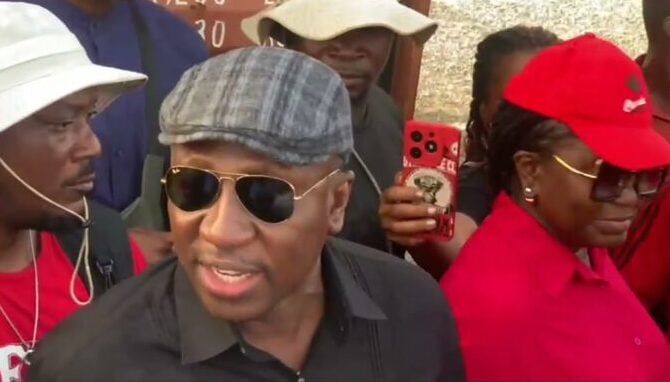Paragraph 1: The Allegation and Afenyo-Markin’s Response
Minority Leader Alexander Afenyo-Markin has proactively addressed allegations of an altercation with a police officer by voluntarily offering to submit himself to police investigation. This preemptive move signifies a willingness to cooperate fully with law enforcement and expedite the resolution of the matter. While Afenyo-Markin confirmed he had not received an official invitation from the Inspector General of Police (IGP) as of his interview on Citi FM’s Eyewitness News, he emphasized the importance of addressing the situation swiftly and transparently. This proactive stance demonstrates a commitment to accountability and a desire to ensure a thorough and unbiased investigation.
Paragraph 2: Waiving Parliamentary Immunity and Proactive Cooperation
A notable aspect of Afenyo-Markin’s response is his decision to waive his parliamentary immunity. This privilege, typically afforded to members of parliament to protect them from arbitrary arrest or legal proceedings, is often a point of contention in cases involving lawmakers. By voluntarily relinquishing this protection, Afenyo-Markin aims to demonstrate his confidence in his innocence and his willingness to face the allegations head-on. Moreover, his direct invitation to the police to contact him further underlines his proactive approach and desire to facilitate a smooth and efficient investigative process. This avoids the potential delays associated with formal parliamentary procedures and underscores his commitment to transparency.
Paragraph 3: Emphasizing Transparency and Public Trust
Afenyo-Markin’s public statements consistently emphasize the importance of transparency. He expresses confidence that a thorough investigation will reveal the truth and allow the matter to be put to rest. This focus on transparency is crucial for maintaining public trust, particularly given the sensitive nature of allegations involving a high-profile political figure. By openly addressing the situation and cooperating with the police, Afenyo-Markin seeks to assure the public that he is committed to upholding the law and demonstrating accountability. This proactive and transparent approach is vital in upholding public confidence in both the legal process and the integrity of elected officials.
Paragraph 4: The Significance of Swift Action
Afenyo-Markin’s insistence on a swift investigation underscores the potential impact of lingering allegations on public perception and political discourse. Unresolved allegations can create unnecessary speculation and distract from important legislative matters. By expediting the investigation, Afenyo-Markin aims to minimize the potential damage to his reputation and maintain focus on his parliamentary duties. This proactive approach signals a recognition of the need to address such matters promptly and efficiently, minimizing any potential disruption to public service.
Paragraph 5: The Potential Implications of the Investigation
The outcome of the police investigation will have significant implications, both for Afenyo-Markin personally and for the broader political landscape. If the allegations are substantiated, it could lead to disciplinary action within parliament and potentially legal repercussions. Conversely, if the investigation clears him of wrongdoing, it will reinforce his call for transparency and accountability. The investigation will be closely scrutinized by the public and the media, and its outcome will undoubtedly influence public perception of Afenyo-Markin and potentially impact his political career.
Paragraph 6: The Role of Public Perception and Accountability
In the current political climate, public perception and accountability play a crucial role. Afenyo-Markin’s proactive response is a strategic move to manage the narrative and demonstrate his commitment to transparency. By taking the initiative and waiving his immunity, he aims to portray himself as cooperative and accountable, rather than evasive or seeking to exploit his parliamentary privileges. This proactive approach is likely intended to mitigate potential damage to his public image and maintain public trust in his leadership. The outcome of the investigation will ultimately determine the effectiveness of this strategy and its long-term impact on his political career.














